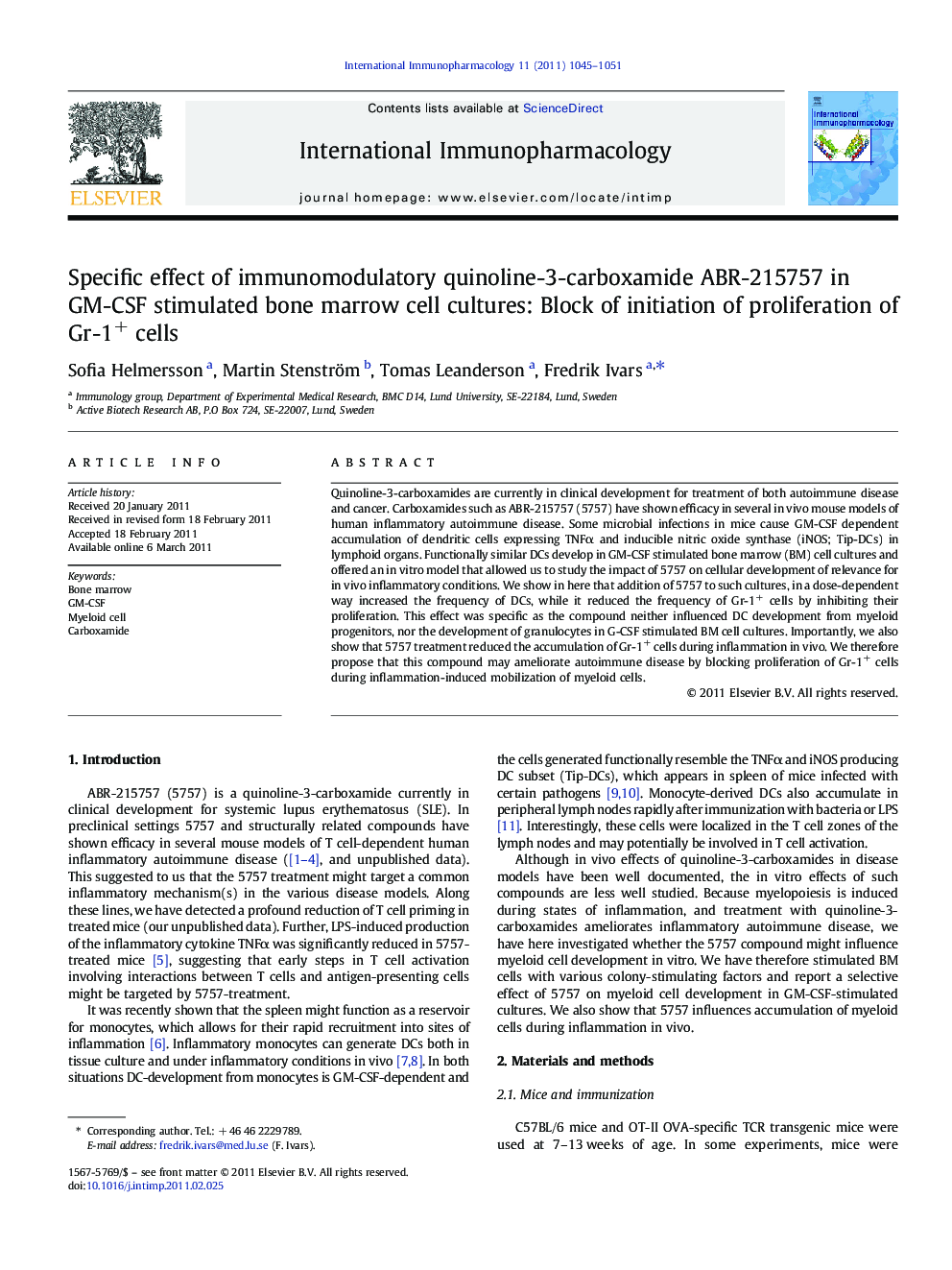| Article ID | Journal | Published Year | Pages | File Type |
|---|---|---|---|---|
| 2541068 | International Immunopharmacology | 2011 | 7 Pages |
Quinoline-3-carboxamides are currently in clinical development for treatment of both autoimmune disease and cancer. Carboxamides such as ABR-215757 (5757) have shown efficacy in several in vivo mouse models of human inflammatory autoimmune disease. Some microbial infections in mice cause GM-CSF dependent accumulation of dendritic cells expressing TNFα and inducible nitric oxide synthase (iNOS; Tip-DCs) in lymphoid organs. Functionally similar DCs develop in GM-CSF stimulated bone marrow (BM) cell cultures and offered an in vitro model that allowed us to study the impact of 5757 on cellular development of relevance for in vivo inflammatory conditions. We show in here that addition of 5757 to such cultures, in a dose-dependent way increased the frequency of DCs, while it reduced the frequency of Gr-1+ cells by inhibiting their proliferation. This effect was specific as the compound neither influenced DC development from myeloid progenitors, nor the development of granulocytes in G-CSF stimulated BM cell cultures. Importantly, we also show that 5757 treatment reduced the accumulation of Gr-1+ cells during inflammation in vivo. We therefore propose that this compound may ameliorate autoimmune disease by blocking proliferation of Gr-1+ cells during inflammation-induced mobilization of myeloid cells.
